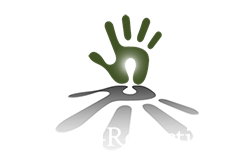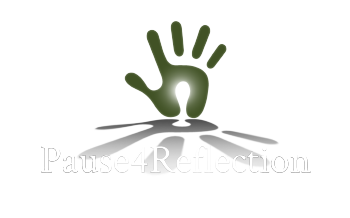Most people are not aware of the different stages of grieving and so don’t really understand that what they are feeling is actually part of the healing process. A counselor can help you to make sense of your feelings and emotions, by educating you on the different stages of bereavement.
These stages can be experienced in any order but by understanding the grief process it allows you to better understand what is actually happening , giving insight into why you feel a certain way. It also supports you positively by clarifying that this grief will not last forever and that there is relief when they finally reach some kind of resolution.
With this knowledge it will allow you to be better equipped emotionally which will in turn help with your coping mechanisms and bringing you to a point of resolution faster and easier.
These stages can be experienced in any order but by understanding the grief process it allows you to better understand what is actually happening , giving insight into why you feel a certain way. It also supports you positively by clarifying that this grief will not last forever and that there is relief when they finally reach some kind of resolution.
With this knowledge it will allow you to be better equipped emotionally which will in turn help with your coping mechanisms and bringing you to a point of resolution faster and easier.

Initial “Shock and Disbelief” stage….
In the initial stages after loss, emotions are at their absolute highest. By the time it all starts to sink in the reality and disbelief starts to set in and the brain goes into overload. The thoughts surrounding the death are fresh and raw and there is sometimes no relief. You may be experiencing sleeplessness and a feeling that you are trying to cope alone and that no one is there to support you.
How can other or anyone for that matter truly understand what it’s like? No one is walking in your shoes and other could never fully understand what you personally are going through, even if others are also experiencing their own grief, children, spouses and the like. The stress surrounding the loss is extreme and sometimes unbearable so managing this extreme emotional pain sometimes clouds your better judgement.
Through this initial period it is a prime time when logic and reason get blown out and the whole way people perceive the events surrounding their loss lose perspective. This is totally normal.
Things at this time and just the day to day becomes surreal. The situation can feel like it didn’t even happen and in some cases people who are suffering with severe shock will try and block it out. Emotions and reactions at this time can be powerful and produce a range of behaviours that are not normal.
The intensity and how long they last is purely based on the person coping mechanisms.If it is prolonged then professional counseling may be required.
In the initial stages after loss, emotions are at their absolute highest. By the time it all starts to sink in the reality and disbelief starts to set in and the brain goes into overload. The thoughts surrounding the death are fresh and raw and there is sometimes no relief. You may be experiencing sleeplessness and a feeling that you are trying to cope alone and that no one is there to support you.
How can other or anyone for that matter truly understand what it’s like? No one is walking in your shoes and other could never fully understand what you personally are going through, even if others are also experiencing their own grief, children, spouses and the like. The stress surrounding the loss is extreme and sometimes unbearable so managing this extreme emotional pain sometimes clouds your better judgement.
Through this initial period it is a prime time when logic and reason get blown out and the whole way people perceive the events surrounding their loss lose perspective. This is totally normal.
Things at this time and just the day to day becomes surreal. The situation can feel like it didn’t even happen and in some cases people who are suffering with severe shock will try and block it out. Emotions and reactions at this time can be powerful and produce a range of behaviours that are not normal.
The intensity and how long they last is purely based on the person coping mechanisms.If it is prolonged then professional counseling may be required.

“Anger, Alienation and Distancing” stage.
After the surreal stage of grief and the experience of numbness wears off, the mind is still trying to work through what has happened and to process it. During this stage anything and everything can pose a problem, the anger is deep seated and usually vented at the innocent people around the grieving person. Actions can be totally irrational lashing out at anyone and everyone involved or closest. It is at this time that people can unconsciously block people that want to help out in the belief that no one understands or feels how they do.
Blame is also a big factor as the mind tries desperately to find out the answers of why did this happen, how did this happen, whose fault is it and in an irrational mind everyone is to blame and will be blamed. Emotion is raw and venting at this stage is the way for pent up frustrations and sadness to be released however, usually not in a constructive way but destructive.
It is also at this time that guilt comes in to play which is when this heart felt anger is turned inward and can be potentially harmful and self-destructive. The person can almost subconsciously want to be punished in some way to justify why they are feeling such rage and internal turmoil. It can be also pure frustration at the fact the individual had no control over the situation and feeling powerless to be able to do anything about it but also blames themselves.
There can also be justification in this anger stage when its turned inward because in fact there may have been involvement i.e. a person may have contributed to the loss in some way.
In most cases the anger stage is temporary as one moves between the stages of grief, the only way forward is to accept the situation and gain control of the emotions.
After the surreal stage of grief and the experience of numbness wears off, the mind is still trying to work through what has happened and to process it. During this stage anything and everything can pose a problem, the anger is deep seated and usually vented at the innocent people around the grieving person. Actions can be totally irrational lashing out at anyone and everyone involved or closest. It is at this time that people can unconsciously block people that want to help out in the belief that no one understands or feels how they do.
Blame is also a big factor as the mind tries desperately to find out the answers of why did this happen, how did this happen, whose fault is it and in an irrational mind everyone is to blame and will be blamed. Emotion is raw and venting at this stage is the way for pent up frustrations and sadness to be released however, usually not in a constructive way but destructive.
It is also at this time that guilt comes in to play which is when this heart felt anger is turned inward and can be potentially harmful and self-destructive. The person can almost subconsciously want to be punished in some way to justify why they are feeling such rage and internal turmoil. It can be also pure frustration at the fact the individual had no control over the situation and feeling powerless to be able to do anything about it but also blames themselves.
There can also be justification in this anger stage when its turned inward because in fact there may have been involvement i.e. a person may have contributed to the loss in some way.
In most cases the anger stage is temporary as one moves between the stages of grief, the only way forward is to accept the situation and gain control of the emotions.

